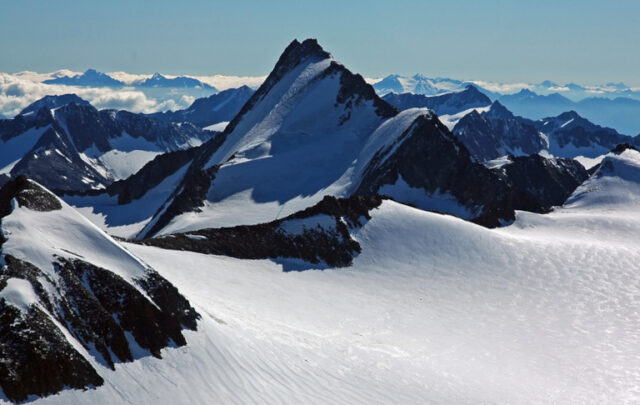Click on the headline (link) for the full text.
Many more articles are available through the Energy Bulletin homepage
Dark Mountain: Issue 1
Dark Mountain Project
Dark Mountain: Issue 1 is a book-length collection of new writing that goes deep into the roots of our culture, addressing the questions raised by the Dark Mountain manifesto: what do we do after we stop pretending that our way of living can be made “sustainable”? And where do we find new stories with which to ground ourselves, as that way of living passes?
The book brings together a remarkable combination of thinkers, writers and artists whose work engages with these questions. Their essays, stories, poems and images are woven into a conversation which draws on a range of cultural and intellectual traditions.
Contributors include John Michael Greer, Jay Griffiths, Ran Prieur, Alastair McIntosh, Maria Stadtmueller, Simon Fairlie, Rupert Cathles, Chris Pak and Jeff Ollerton.
There is new fiction from Nick Hunt, Simon Lys and Paul Kingsnorth, alongside celebrations of great writers whose work offers possibilities for the unknown world ahead – Robinson Jeffers, Ursula le Guin, John Berger.
Poetry from Melanie Challenger, Mario Petrucci, Glynn Hughes, Louis Jenkins, JD Whitney, Adrienne Odasso, Mark Waters, Dan Grace, Charles Davies, Tony Walton, Seamus Brady, Tom Scott, Christine Bousfield, William Haas and Lewis Bassett.
And the first in a series of Dark Mountain dialogues, with Anthony McCann interviewing Derrick Jensen and Vinay Gupta in conversation with Dougald Hine.
(May 2010)
Natural Regression
Ben Saunders, Zibanitum Films
Natural Regression is a short independant documentary that focuses on the energy crisis and how much impact it has on the economy. With interviews from Colin Campbell and Chris Skrebowski, this gives us an insight on the nature of the financial crisis. The financial consequences are so overwhelming that this subject should be at the heart of political debate everywhere.
(May 2010)
Watch the whole film here.
‘Historic’ day as first non-Latin web addresses go live
BBCnew
Arab nations are leading a “historic” charge to make the world wide web live up to its name.
Net regulator Icann has switched on a system that allows full web addresses that contain no Latin characters.
Egypt, Saudi Arabia and the United Arab Emirates are the first countries to have so-called “country codes” written in Arabic scripts.
The move is the first step to allow web addresses in many scripts including Chinese, Thai and Tamil.
More than 20 countries have requested approval for international domains from the Internet Corporation for Assigned Names and Numbers (Icann).
It said the new domains were “available for use now” although it admitted there was still some work to do before they worked correctly for everyone. However, it said these were “mostly formalities”.
Icann’s senior director for internationalised domain names, Tina Dam, told BBC News that this has been “the most significant day” since the launch of the internet, adding that “it’s been a very big day for Icann, more so for the three Arabic countries that were the first to be introduced”.
Icann president Rod Beckstrom described the change as “historic”…
(6 May 2010)
The Coming Greenhouse World
Alex Smith, Radio Ecoshock
“Look. I’m going to do my best to end up in a kind of hopeful optimistic place. But – I am by nature, by sort of profession, I am kind of a professional bummer-outer of people. So we’re going to have to deal with that for a little while. Because there’s no use not. We need to figure out just where we are, in order to figure out where we need to go.”
Yes, it’s ugly being Green these days. That was Bill McKibben, opening a speech in Colorado, touring with his new book “Eaarth”, the post-Copenhagen capitulation to a new and damaged planet. Download the whole speech as an mp3 ( 1 hour 12 MB) from our Climate 2010 page.
I’m Alex Smith. This is Radio Ecoshock, where reality becomes the new horror genre.
Not the oil blowing into the Gulf of Mexico. Not the BP dispersants, the largest chemical experiment on the ocean, ever. Not even the phony permits, non-existent backup plans, the cover-up.
The real unreported tragedy: nobody gets this story. Humans now know they are shifting the climate toward a Greenhouse world. According to NASA, we just had the hottest January to April global temperatures ever recorded. Over 255 National Academy of Science members just put out a strong warning, that the press didn’t bother to print.
http://climateprogress.org/2010/05/06/national-academy-of-sciences-lette…
And yet the Green champions in the Senate still brought out a bill calling for more offshore drilling! The Canadian government still approves even deeper wells on the East Coast, drilling now as you hear this, with even less hope of recovery from an accident. And they want to do it in the Arctic, on the West Coast.
The shame, we say, is that we didn’t get a chance to burn all that oil, to send the carbon into the atmosphere, where some will fall back into the ocean anyway, into the Gulf of Mexico, and all oceans, turning them acidic, killing off life at the basis of the food chain.
Nobody wants to say, if we cared for our children and grandchildren at all, if we cared about the world, we would stop all oil exploration, anywhere, today. Call it off. The atmosphere can’t take another drop hauled out from under the sea, from under the land, from the Tar.
We will all drive away from this accident, as though the Greenhouse world isn’t coming, arriving slow and almost unstoppable, visible and denied.
Do you think I’m being too bleak, just another climate alarmist? Professor George Martin Kennedy, from the University of California, Riverside made a speech April 8th, 2010. It’s called “What Awaits Us In the Greenhouse World.” Watch the whole hour long video, with the link in my May 20th Ecoshock blog.
http://cnas.ucr.edu/sciencelectures/4-8-10.html…
(19 may 2010)





